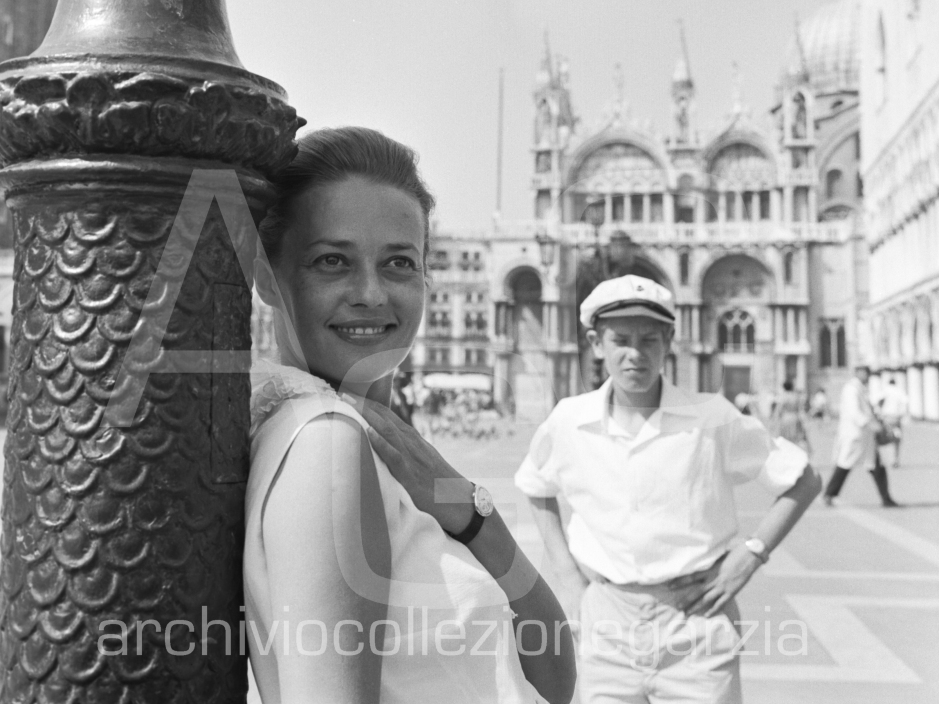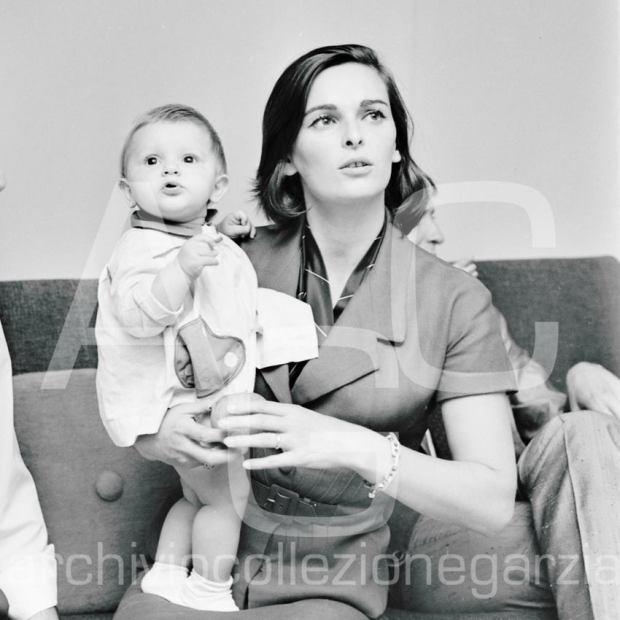Jeanne Moreau (Parigi, 23 gennaio 1928 – Parigi, 31 luglio 2017) è stata un’attrice, cantante e regista francese.
Interprete tanto incisiva quanto versatile, a vent’anni era già una delle più famose attrici francesi. Grazie soprattutto al riconoscimento del suo talento da parte di Louis Malle, fu celeberrima negli anni cinquanta.
Jeanne Moreau est une actrice, chanteuse et réalisatrice française, née le à Paris et morte dans la même ville le 1.
Elle a joué dans plus de 130 films — dont Ascenseur pour l’échafaud, Les Amants, Moderato cantabile, Jules et Jim, Eva, Le Journal d’une femme de chambre, Viva María!, La mariée était en noir, La Vieille qui marchait dans la mer… —, sous la direction de grands réalisateurs comme Luis Buñuel, Theo Angelopoulos, Wim Wenders, Rainer Werner Fassbinder, Michelangelo Antonioni, Joseph Losey, Orson Welles, François Truffaut, Louis Malle, André Téchiné, Bertrand Blier, etc.
Elle est la première femme élue à l’Académie des beaux-arts de l’Institut de France (en 2000 au fauteuil créé en 1998 dans la section Création artistique pour le cinéma et l’audiovisuel) et en 1992, elle obtient le César de la meilleure actrice pour La Vieille qui marchait dans la mer, suivi de deux César d’honneur en 1995 et en 2008.
En 1998, l’Académie américaine des arts et des sciences du cinéma lui décerne un Oscar d’honneur.
Jeanne Moreau (French pronunciation: [ʒan mɔʁo]; 23 January 1928 – 31 July 2017) was a French actress, singer, screenwriter and director. She won the Cannes Film Festival Award for Best Actress for Seven Days… Seven Nights (1960), the BAFTA Award for Best Foreign Actress for Viva Maria! (1965), and the César Award for Best Actress for The Old Lady Who Walked in the Sea (1992). She was also the recipient of several lifetime awards, including a BAFTA Fellowship in 1996.
Moreau made her theatrical debut in 1947, and established herself as one of the leading actresses of the Comédie-Française. She began playing small roles in films in 1949, with impressive performances in the Fernandel vehicle Meurtres? (Three Sinners, 1950) and alongside Jean Gabin as a showgirl/gangster’s moll in the film Touchez pas au grisbi (1954). She achieved prominence as the star of Elevator to the Gallows (1958), directed by Louis Malle, and Jules et Jim (1962), directed by François Truffaut. Most prolific during the 1960s, Moreau continued to appear in films into her 80s.
Jeanne Moreau (París, 23 de enero de 1928 – íd., 31 de julio de 2017)1 fue una actriz, guionista y directora francesa. Ganó el premio del Festival de Cannes a la mejor actriz por Moderato cantabile (1960), el premio BAFTA a la mejor actriz extranjera por Viva María! (1965), y el premio César a la mejor actriz por La Vieille qui marchait dans la mer (fr) (1992). También recibió varios premios de por vida, incluida un BAFTA Fellowship en 1996.
Moreau hizo su debut teatral en 1947, y se estableció como una de las principales actrices de la Comédie-Française. Ella comenzó a interpretar pequeños papeles en películas en 1949, con actuaciones importantes en el vehículo de Fernandel Meurtres? (fr) (1950) y junto a Jean Gabin en la película Touchez pas au grisbi (fr) (1954). Obtuvo prominencia como la estrella de Ascensor para el cadalso (1958), dirigida por Louis Malle, y Jules y Jim (1962), dirigida por François Truffaut. Más prolífica durante la década de 1960, Moreau siguió apareciendo en películas hasta sus 80 años.

Venezia 1961








